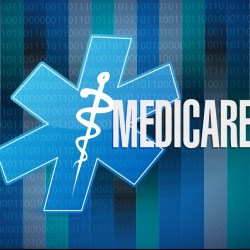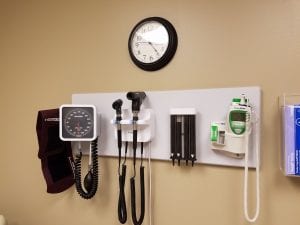Small practice positives and challenges regarding the implementation of MACRA
Small practice positives and challenges regarding the implementation of MACRA
There are positives and challenges for the small practice regarding the implementation of the Medicare Access & CHIP Reauthorization Act (MACRA).
Small practice positives with MACRA
- The flexible “pick your pace of participation” route permits practices to report one active quality measure per provider for the year 2017 to avoid Medicare payment penalties or report all required data for the year to receive a small bonus. There are also choices in between the one measure or all data reporting options.
- For many practices, this flexibility allows time to learn about MACRA and prepare accordingly. If practices use 2017 to learn the MACRA basics, they will be in a better position for the years that follow.
- CMS also lowered the exemption threshold, so any physician that bills Medicare less than $30,000 annually or has 100 Medicare patients or fewer does not have to participate in MACRA.
- Also, any practice with two or more eligible clinicians is permitted to report to CMS as a group under its tax identification number. However, physicians who exceed the threshold for being subject to MIPS must report data even if some of their colleagues in the same practice are exempt. Only if 75% or more of the eligible clinicians in a practice are exempt can the whole practice avoid MIPS.
- But if some providers in a group must report to MIPS, the group can still measure individual practitioner performances regarding quality and value with most payers moving toward value-based reimbursement. This cumulative data can serve to improve the overall practice.
- With MACRA, the penalties are smaller and there is a chance for bonuses. For instance, in the first year of MACRA payment, the biggest penalty is 4% compared to 11% under the old system.
- Advancing Care Information (ACI), the successor to Meaningful Use, now requires clinicians to meet only five measures instead of the 11 in the proposed rule: information security, patient safety, patient engagement and health information exchange. Extra credit is given for electronic reporting to public health and clinical data registries or for using certified (EHRs) for certain practice improvement actions.
- To help practices make the transition, CMS is allowing third-party vendors to submit data for practices.
- Physicians belonging to an accountable care organization (ACO) that currently reports quality data to the Medicare Shared Savings Program do not have to report the information individually to CMS under MIPS.
- Also, those who belong to a qualified patient-centered medical home will automatically get full credit for clinical practice improvement activities.
Small practice challenges with MACRA
- Small practices have fewer resources than larger groups to support participation in the MIPS track of MACRA. IT infrastructure, data systems for reporting performance metrics, billing outsourcing or systems will be required to achieve value-based care reimbursement. By 2018, they will be required to have a 2015-certified electronic health record (EHR) system.
- There is a concern that all the paperwork and documentation will overwhelm the ability to provide the accustomed personalized care to patients.
- Due to MACRA’s intricacies and expense, some small practices may retire, sell out, consolidate or retreat from Medicare. Hopefully, many small practices will figure out how to comply given the $20 million in annual funding from CMS to assist small practices with compliance.
- A feature that would benefit small practices by combining data for reporting purposes is the virtual group implementation which has been delayed. It is hoped that virtual groups will be operational by 2018. For small groups to be able to compete, they need to be able to share resources and risks, thereby functioning as a larger group during a MIPS performance period. By spreading risk, they can possibly take advantage of advanced Alternative Payment Models (APM).
- Core ACI measures include the exchange of electronic care summaries. Due to the state of interoperability between EHRs, practices will find it difficult to trade them. Physicians can direct secure message to send and receive clinical summaries without interoperability between their EHRs using a health information service provider (HISP). But this means of communication is not always functional or reliable and health information exchange measures are difficult to meet. However, it is believed that most practices should be able to exchange summaries electronically with enough partners to satisfy the requirement.
- While small practices are not held accountable for the total cost of care at least for the first year, there is concern about that for future years.
- In addition, reporting requirements will increase in a year or two so it is best to get familiar with new MACRA reporting requirements and quality metrics in 2017 and prepare strategically for the future.
- In 2017, physicians can continue to use their current EHRs if those have been certified under the previous standards of the Meaningful Use program. Beginning in 2018, all physicians in the Quality Payment Program, whether they participate through the Merit-based Payment Incentive System (MIPS) or an Advanced Alternative Payment Model (APM), will need to transition to new EHRs though very few vendors have re-certified or upgraded. This will potentially cause delays and significant costs.
For practices not utilizing an EHR
For practices that currently do not utilize an EHR, which is especially true for anesthesia practices, no matter how they report in 2017, unless they can fill the requirements for an exception on not meeting the Advancing Care Information (EHR usage), they will not be able to achieve a bonus award since they don’t have an EHR. Their maximum composite score they can reach in MIPS is 75% which will keep them from a penalty but will not allow an incentive. If the practice is granted the exception, then the 25% weight will be shifted to quality in place of the Advancing Care Information.
To learn more about the exception, please contact 888.610.2455/888.610.8322 or jmalloy@globalhealthmgt.com








